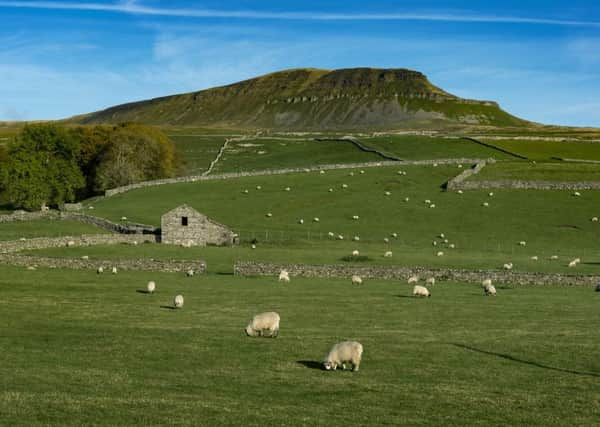Warwick Lightfoot: Our opportunity to shape modern farming policy


As The Yorkshire Post said last week, the new British Agricultural Policy we put in its place must be fit for purpose and must encourage farmers to flourish.
That’s why this week Policy Exchange published Farming Tomorrow, a new plan for managing Britain’s agriculture. There are two key aspects to our proposals: rewarding farmers for protecting the environment rather than for production, and removing tariffs on food so that we can cut food prices for consumers.
Advertisement
Hide AdAdvertisement
Hide AdBritish farmers used to be among the most productive in the world. In recent decades, however, their productivity has stagnated, and many farms would not be sustainable without substantial subsidy. The management of the withdrawal of farming support is going to be a central issue for the new domestic policy. But the goal should be to create a highly productive, dynamic farming sector, more specialised and capable of competing in global markets.
While agriculture now accounts for only around one per cent of employment, Britain’s farmers still manage 70 per cent of our land, and it is time we rewarded them properly for doing so.
Instead of subsidising large landowners, public money should be spent on public goods. That means that we should decide what we need from our countryside and reward those who manage the land accordingly. For example, if we want to maintain the natural beauty of areas such as the Yorkshire Dales, then we must reward those whose careful stewardship makes it so special.
And if we want to mitigate the future impact of floods like those which have repeatedly hit this region over the last few years, we must reward those who take part in flood prevention schemes.
Advertisement
Hide AdAdvertisement
Hide AdWith agriculture under the EU’s control and forestry still devolved to member states, we have not been able to develop a proper integrated land management strategy. Brexit gives us the opportunity to join these up, so we can reward landowners for planting trees – which can not only help with flood prevention, but can also help offset our carbon emissions.
The implications of agricultural reforms will be far reaching, going beyond the sector to the wider rural economy. Under the CAP, agriculture has seen decreasing employment, among the lowest productivity of England’s industrial sectors, and a failure to facilitate competitiveness and diversity in the wider rural economy.
Exiting the EU provides an opportunity to do something more than simply reforming the CAP — a bold new approach to rural development must be taken. The Government will need to work with areas like Yorkshire to ensure that it develops industrial strategies which are suitable for the rural economy and which facilitate the development of other industries such as tourism.
But agriculture policy is not just about the farmers. British food prices are around 15 to 18 per cent higher than world prices, which hurts our poorest households most. We must put consumers at the heart of any policy around food. This is why, after leaving the EU Customs Union, we recommend that the UK should unilaterally phase out tariffs that increase consumer food prices and complicate new trade deals.
Advertisement
Hide AdAdvertisement
Hide AdThe direct fiscal consequences of this would be relatively modest — tariffs only bring in around £2.5bn to the Exchequer a year — and it would require no complicated negotiations to implement. Both New Zealand and Australia are near this, applying the equivalent of only a 0.4 per cent tariff to agriculture, or 1.3 per cent including subsidies.
The historical evidence of the 20th century suggests that while tariff barriers may increase the domestic size of a sector, they do so at the cost of low productivity and high prices, disproportionately hurting the poor.
Any big change in a policy that has been in place for over 40 years will have to be phased to allow people time to adapt to a new system. We may also find ourselves pioneering changes which will happen within the rest of the EU as well – when CAP absorbs about 40 per cent of the EU budget, it is inevitably a target for reform.
We have a great opportunity to decide what farming policy should be for in the modern world. We will be able to radically change one of the most defective economic policy regimes in the advanced economies. We should embrace the opportunity for change and use it wisely.
Warwick Lightfoot is Director of Research at Policy Exchange and the lead author of Farming Tomorrow: British agriculture after Brexit and a former special advisor to three Conservative Chancellors.